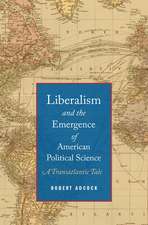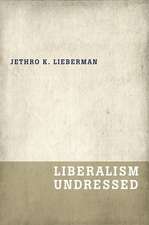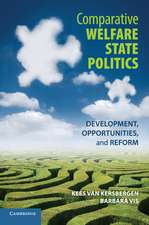Ruling Ideas: How Global Neoliberalism Goes Local
Autor Cornel Banen Limba Engleză Paperback – 4 aug 2016
Neoliberal economic theories are powerful because their domestic translators make them go local, hybridizing global scripts with local ideas. This does not mean that all local translations shape policy, however. External constraints and translators' access to cohesive policy institutions filter what kind of neoliberal hybrids become policy reality. By comparing the moderate neoliberalism that prevails in Spain with the more radical one that shapes policy thinking inRomania, Ruling Ideas explains why neoliberal hybrids take the forms that they do and how they survive crises. Cornel Ban contributes to the literature by showing that these different varieties of neoliberalism depend on what competing ideas are available locally, on the networks of actors who serveas the local advocates of neoliberalism, and on their vulnerability to external coercion.Ruling Ideas covers an extended historical period, starting with the Franco period in Spain and the Ceausescu period in Romania, discusses the economic integration of these countries into the EU, and continues through Europe's Great Recession and the European debt crisis. The broad historical coverage enables a careful analysis of how neoliberalism rules in times of stability and crisis and under different political systems.
Preț: 300.14 lei
Preț vechi: 349.10 lei
-14% Nou
57.45€ • 62.42$ • 48.29£
Carte tipărită la comandă
Livrare economică 09-15 aprilie
Specificații
ISBN-10: 019060039X
Pagini: 312
Dimensiuni: 234 x 155 x 20 mm
Greutate: 0.45 kg
Editura: Oxford University Press
Colecția OUP USA
Locul publicării:New York, United States
Recenzii de la cititorii Books Express
Delcea Sergiu a dat nota:
Cornel Ban's newest contribution tackles an extremely important topic - when and why do ideas matter in politics? If they do matter, which ideas and why? Going a step further than previous similar attempts (Aligica & Evans 2009), Ban provides an in-depth analysis of networks, epistemic communities and the spread of ideas, in this particular case revolving around the core doctrine of "neoliberalism". Blending in typical political science approaches to the study of ideas with in-depth interviews, Ban manages to finely dissect the roles of agency and institutions. The two case studies, Romania and Spain, offer two different settings - two semi-peripheral countries, with distinct authoritarian pasts and international embedding. To a certain degree, the book could have benefitted from a slightly larger theoretical chapter, though what is offered is clear and elegant and does not take anything away from the book.
Notă biografică
Assistant Professor of Political Science, Boston University













